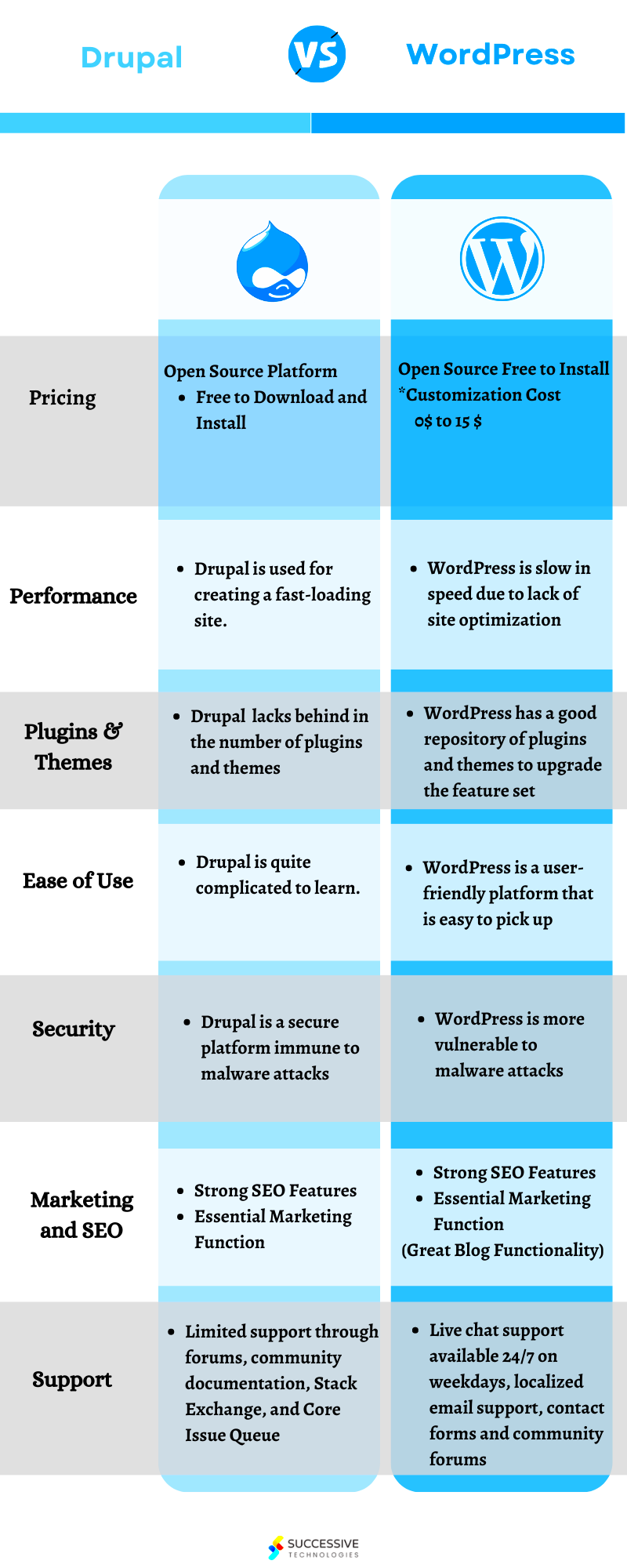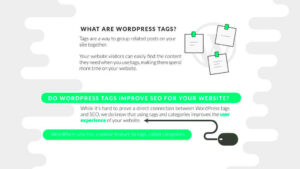When it comes to enterprise-level SEO, the right content management system (CMS) can make a world of difference. WordPress and Drupal are two of the most popular platforms for building websites, but they differ in their approach to search engine optimization (SEO). Understanding how each platform supports SEO can help enterprises make informed decisions. While WordPress is known for its user-friendly interface, Drupal is celebrated for its advanced customization options. Let’s dive deeper into how each of these platforms caters to enterprise SEO needs.
How WordPress Supports Enterprise SEO

WordPress is a powerful CMS that simplifies SEO for users, making it a favorite among businesses of all sizes. Here’s how WordPress supports enterprise-level SEO:
- SEO Plugins: Tools like Yoast SEO and Rank Math provide robust features for optimizing metadata, generating XML sitemaps, and analyzing content readability.
- Mobile-Friendly Design: Most WordPress themes are responsive, ensuring your site looks great and performs well on all devices.
- Custom Permalinks: WordPress allows easy customization of URLs to include target keywords, enhancing search engine rankings.
- Integration with Tools: Seamless integration with Google Analytics and Search Console provides valuable insights for refining SEO strategies.
Additionally, WordPress has a vast library of themes and plugins that cater to specific SEO requirements, making it accessible even for non-technical users. However, enterprises may face challenges like plugin compatibility and the need for performance optimization as the site grows.
How Drupal Enhances Enterprise SEO
Drupal is often chosen by enterprises that require highly customizable and scalable websites. Here’s how Drupal caters to SEO needs:
- Advanced Customization: With Drupal, you can fine-tune every aspect of your website’s structure to improve SEO performance.
- Built-in Multilingual Support: Drupal makes it easy to create multilingual websites, which is critical for global SEO campaigns.
- Granular Permissions: Drupal’s role-based permissions allow teams to manage content and SEO settings securely and efficiently.
- Clean Code: Drupal’s framework promotes clean and semantic HTML, which is essential for search engine crawlers.
Moreover, Drupal excels in handling complex taxonomy structures, making it ideal for large-scale websites with vast amounts of content. While it has a steeper learning curve, its flexibility makes it a strong contender for enterprises prioritizing SEO.
Key Differences Between WordPress and Drupal for SEO
WordPress and Drupal are both powerful platforms, but they approach SEO in different ways. Understanding these differences can help you decide which one suits your enterprise needs better.
| Feature | WordPress | Drupal |
|---|---|---|
| User-Friendliness | Easy to use with a straightforward interface, ideal for beginners. | Steeper learning curve but offers advanced customization. |
| SEO Tools | Plugins like Yoast and Rank Math make optimization simple. | Modules like Metatag and Pathauto provide detailed control. |
| Customization | Limited by themes and plugins, but still highly flexible. | Allows complete control over website structure and features. |
| Performance | May require additional plugins for caching and speed optimization. | Optimized for high performance with built-in caching features. |
| Scalability | Best suited for small to medium-sized enterprises. | Ideal for large-scale, complex websites. |
While WordPress excels in ease of use and plugin availability, Drupal shines with its advanced customization and scalability. Choosing the right platform depends on your business priorities and technical expertise.
Factors to Consider When Choosing WordPress or Drupal
Selecting the right CMS for your enterprise involves evaluating several key factors. Here’s what you should think about:
- Budget: WordPress is generally more cost-effective due to its wide range of free plugins and themes, while Drupal may require higher initial investment for setup and maintenance.
- Technical Expertise: WordPress is user-friendly and doesn’t require coding skills, whereas Drupal demands more technical knowledge for customization and management.
- SEO Requirements: If you need advanced control over metadata and URL structures, Drupal might be better. WordPress, however, offers simpler solutions for standard SEO needs.
- Site Complexity: For simple blogs or small business sites, WordPress is often sufficient. Drupal is better suited for large-scale, complex websites with high traffic.
- Community and Support: WordPress has a larger community and more support resources, while Drupal provides dedicated but smaller community-driven assistance.
Considering these factors can guide your decision, ensuring the CMS aligns with your business goals and technical capacity.
Common Challenges and Solutions for SEO on Both Platforms
Both WordPress and Drupal have their own challenges when it comes to SEO. Here are some common issues and how to address them:
- Performance Optimization: Both platforms may experience slow page load times as your site grows. Use caching tools like WP Rocket for WordPress and built-in caching in Drupal to enhance speed.
- Duplicate Content: Automatic content duplication can hurt SEO. Use plugins like Rank Math on WordPress and modules like Redirect in Drupal to fix this issue.
- Metadata Management: Incomplete or missing metadata can impact rankings. Tools like Yoast SEO (WordPress) and Metatag (Drupal) help manage meta descriptions and titles effectively.
- Broken Links: Over time, links may become outdated. Use a plugin like Broken Link Checker for WordPress or run scripts in Drupal to identify and fix broken links.
- Mobile Optimization: Ensuring your site is mobile-friendly is crucial. Both platforms offer responsive themes, but you may need additional testing to confirm proper functionality.
Addressing these challenges with the right tools and strategies can significantly improve your SEO performance, regardless of the platform you choose.
Frequently Asked Questions About WordPress and Drupal for SEO
Choosing between WordPress and Drupal for SEO can raise many questions. Here are some frequently asked ones to help you decide:
- Which platform is better for beginners in SEO?
- Can Drupal handle large enterprise websites better than WordPress?
- Are SEO plugins or modules free on both platforms?
- Which platform is more customizable for technical SEO?
- Does either platform provide better mobile SEO optimization?
WordPress is generally better for beginners due to its intuitive interface and numerous beginner-friendly plugins like Yoast SEO. Drupal, while powerful, has a steeper learning curve.
Yes, Drupal is better suited for handling large-scale, complex websites due to its scalability and ability to manage vast amounts of content efficiently.
Many WordPress SEO plugins have free versions with premium upgrades, such as Rank Math and Yoast. Similarly, Drupal modules like Pathauto and Metatag are free but may require additional expertise for setup.
Drupal provides more customization options for technical SEO, allowing advanced users to tailor every detail. WordPress also offers customization but is often limited to plugin capabilities.
Both platforms support mobile-friendly designs. WordPress themes often include built-in responsiveness, while Drupal allows more control over mobile optimization through custom themes.
If you still have concerns, consulting a professional can help you navigate these platforms and make the best choice for your enterprise SEO needs.
Conclusion on Choosing the Right Platform for Enterprise SEO
WordPress and Drupal both offer unique strengths for enterprise SEO. WordPress is ideal for ease of use and rapid deployment, while Drupal excels in customization and scalability. Your decision should depend on your specific SEO needs, technical expertise, and long-term goals. With the right approach, either platform can deliver exceptional results for your enterprise SEO strategy.



